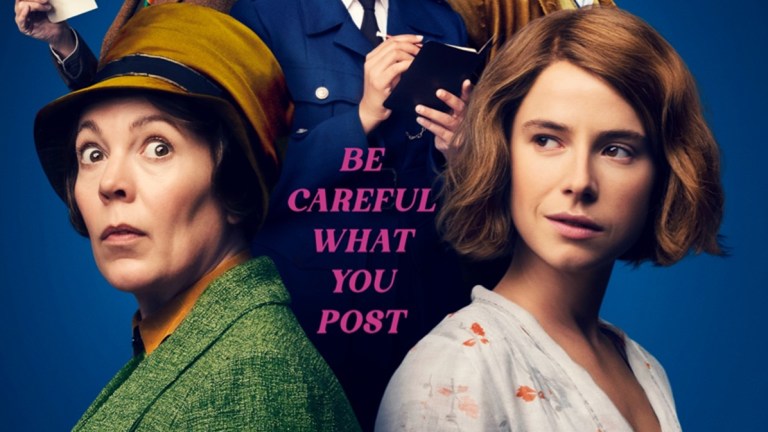The Olivia Colman and Jessie Buckley film leaves out the trickier real-life details.
Warning: contains spoilers for Wicked Little Letters.
Film-Edith is the culprit but also a victim.

The release she finds in writing spiteful letters is presented as a sad consequence of the patriarchy.
Shes a clever, frustrated and underestimated woman opening the only valve she sees as available.
Ill write to you, promises Edith.
Ill brace myself, jokes Rose.
Likewise, neighbour Rose is presented as a spunky modern heroine.
In one scene, Edith looks on in shocked glee when Rose headbutts a local man who insults her.
Hoo-fucking-ray, is the general mood.
Tell it like it is, sister.
The Real Edith Swan
Thereal-life caseof The Littlehampton Libels makes it tougher to celebrate Ediths behaviour.
In the real case, Edith targeted Rose much more deliberately.
It wasnt her father who initiated the legal action against Rose, but Edith herself.
In July 1920,she consulted a solicitorwho launched a private prosecution against Rose.
The letters were a clear attempt to frame a rival.
The call prompted a house inspection and no wrong-doing was found.
In the film, Edith is terrified of her father and cowed by his presence.
Despite being in her 40s, shes treated like a servant and a child by him.
Theres a sinister edge and an abusive nature to Spalls character.
Edith accuses him of having done it to keep her at home, under his control.
In the film, Rose is presented as bravely alone in the world.
When shes arrested and asked for her next of kin, she tells the police that she has nobody.
Why Did She Do It?
The film suggests that Ediths letter-writing was a mania, and presents it as an addiction of sorts.
Her father belittles her, and so she retaliates with a letter as an outlet.
Its an out-of-control habit born out of decades of gender and class-based repression.
Its cruel and unfair, but theres a reasoning to it.
Perhaps that did play its part in the real Ediths motivation.
Wicked Little Letters is out in cinemas now.